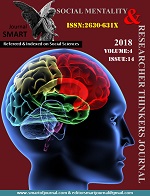Author :
Abstract
Modernite eleştirisi farklılıkları ve tikellikleri vurgularken, bu eleştirinin hareket noktası modern ekonomi politikaları ve kültür politikalarının benliğe ve cinsiyet üzerine müdaheleci pratikler yarattıklarıdır. Bu başlangıç noktası, bilinç, benlik, özne, kimlik, tanınma gibi modern felsefi sorunsal dağarcığını, cinsellik, toplumsal cinsiyet, erkeklik, kadınlık ve annelik sorunsallarına genişletir. Çünkü bu kavramlar modern dil, imge ve temsiller aracılığıyla politik, toplumsal, kültürel ve sanatsal alanlarda yeniden üretilmiş ve yayılmıştır. Nitekim modern özne, kendi kendine yeten bilgi, bilinç ve tasarlama yetisine sahip olarak tanımlanmıştır. Öznelerin toplumsal kimlikleri kurulurken cinsiyetleri ve cinsiyet özellikleri de erkek ve babalık, kadın ve annelik olarak inşa edilmiştir. Bu nedenle bu çalışma, modernite ve modern özne tartışmasına toplumsal cinsiyet perspektifinden bakmanın gereğine vurgu yapar; özellikle kadına yüklenen annelik rolünü merkeze alarak tartışmaya eleştirel perspektiften bakabilmenin imkanını vurgular. Çalışma, annelik meselesinin modern özne eleştirisindeki önemine vurgu yapacak ve annelik sorunsalının modernleşme pratiklerinde ele alınış tarzlarına değinecektir. Çalışma, çağdaş eleştiri aracılığıyla politikada ve kurumsal pratiklerde olduğu kadar, kültürel ve sanatsal pratiklerde de içerilen kadın ve annelik algısının pek çok yönünü betimleyecektir.
Keywords
Abstract
While the critique of modernity emphasizes differences and particularities, the start point of this criticism is that modern economic policies and cultural policies have created interventionist practices on self and gender. This starting point extends the modern philosophical problematic, such as consciousness, self, subject, identity, recognition, to the problems of sexuality, gender, masculinity, femininity, and motherhood. Because, these concepts have been reproduced and disseminated in political, social, cultural and artistic fields through modern language, images, and representations. In fact, the modern subject has been defined as having the ability to self-sufficient knowledge, consciousness, and design. While the social identities of the subjects were established, gender and gender characteristics were constructed as men and fatherhood, women and motherhood. Therefore, this study emphasizes the need to look at modernity and the modern subject discussion from a gender perspective; In particular, it emphasizes the possibility of looking at the discussion from a critical perspective, centering on the role of motherhood in women. The study will emphasize the importance of the maternity issue in the critique of modern subjects and address the ways in which the problem of motherhood is dealt with in modernization practices. Through contemporary criticism, the study will describe many aspects of women and motherhood perception, including cultural and artistic practices, as well as in politics and institutional practices.
Keywords
- Akbulut, H. (2008). Kadına Melodram Yakışır Türk Melodram Sinemasında Kadın İmgeleri, Bağlam
- Akbulut, H. (2008). Kadına Melodram Yakışır Türk Melodram Sinemasında Kadın İmgeleri, Bağlam Yay., İstanbul.
- Bora, A. (2011), “Toplumsal Cinsiyete Dayalı Ayrımcılık”, http://secbir.org/images/haber/2011/01/15-aksu-bora.pdf. Erişim 05/03/2016.
- Althusser, L. (2000). İdeoloji ve Devletin İdeolojik Aygıtları, (Çev.: Y. Alp ve M. Özışık), İletişim, İstanbul.
- Badinter, E. (1992), Annelik Sevgisi, (Çev.: Kamuran Çelik), Afa Yay., İstanbul.
- Badinter, E., (2011), Kadınlık mı Annelik mi?, (Çev.: Ayşen Ekmekçi), İletişim Yay., İstanbul.
- Baudrillard, J. (1991). Sessiz Yığınların Gölgesinde Toplumsalın Sonu, (Çev.: Oğuz. Adanır), Ayrıntı, İstanbul.
- Best, S. ve Kellner, D. (2011), Postmodern Teori, (Çev.: Mehmet Küçük), Ayrıntı, İstanbul. Butler, J. (2014), Cinsiyet Belası, (Çev.: Başak Ertür), İletişim Yay., İstanbul.
- Comolli, J-L. ve Narboni, J. (2010), “Sinema, İdeoloji, Eleştiri”, (Ed. Seçil Büker, Y. Gürhan Topçu), Sinema: Tarih-Kuram-Eleştiri, ss: 97-109, Kırmızıkedi, İstanbul.
- Çeler, Z. (2013), “Annenin Serüveni: Kadının Anne Olarak Toplumsal Kurgulanışı”, (Ed. Cansu Özge Özmen), DoğuBatı, Toplumsal Cinsiyet Özel Sayısı, 63, ss: 165-185, Doğu Batı, Ankara.
- Demirci-Yılmaz, T. (2015), “Osmanlı ve Erken Cumhuriyet Dönemi Türkiye ModernleşmesindeAnnelik Kurguları (1840-1950)”, (Ed. Şeyda Öztürk), Cogito, Annelik Sayısı, 81, ss: 66-91, Yapı Kredi Yay., İstanbul.
- Foucault, M. (2005). Özne ve İktidar, (Çev. I. Ergüden ve O. Akınhay), Ayrıntı, İstanbul. Kandiyoti, D. (2013), Cariyeler, Bacılar, Yurttaşlar, Metis, İstanbul.
- Laughey, D. (2010), Medya Çalışmaları, Teoriler ve Yaklaşımlar, (Çev.: Ali Toprak), Kalkedon, Lyotard, J.F. (1997), Postmodern Durum, (Çev.: A. Çiğdem), Vadi, Konya.
- Mulvey, L. (2010), “Görsel Haz ve Anlatı Sineması", (Ed. Seçil Büker-Y. Gürhan Topçu), Sinema: Tarih-Kuram-Eleştiri, s:211-229, Kırmızıkedi, İstanbul.
- Ryan, M. ve Kellner, D. (1990), Politik Kamera, Çağdaş Hollywood Sinemasının İdeolojisi ve Politikası, (Çev.: Elif Özsayar), Ayrıntı, İstanbul.
- Silverman, K. (2006), Görünür Dünyanın Eşiği, (Çev.: Aylin Onacak), Ayrıntı, İstanbul.
- Uğurlu, E. G. (2013), “Annelik Rolünün Öğrenilme Sürecinde Medyanın Yeri”, Erciyes Üniversitesi Sosyal Bilimler Enstitüsü Dergisi, 34, ss:1-24.
- Weber, M. (2004), Sosyoloji Yazıları, (Çev.: Taha Parla), İletişim, İstanbul.





